Heavy rains have become the norm in recent years, even for areas once drought-stricken. The skies have opened up, and filled our pools with rain in the process.
Our question today is: What is the effect of rain on pool water chemistry?
Isn’t Rain Water Pure, Distilled Water?
Almost. Formed from evaporated water, rainwater leaves behind minerals, carbonates, and dissolved solids on the ground, as it evaporates into the air. As for pool maintenance, rainstorms can raise the water level in the pool so high that the skimmer no longer skims, and high winds can deposit debris and leaves into the pool.
Heavy Rains and pH
Acid rain is rainwater that has absorbed carbonic acid and sulfuric acid from atmospheric gases. Such rain is not usually extremely acidic, but may fall in the 5.5–6.5 pH range. Which is low enough to affect your pool pH levels, in addition to environmental concerns.
Pure rainwater is initially neutral in pH, a perfect 7.0, but quickly absorbs low pH contaminants as it falls through the sky. The effect of low pH rain on your pool’s pH level is usually small, with the exception of heavy rains over a period of days, which can require pH Increaser to correct.
Heavy Rains and Total Alkalinity
Rain will decrease your Total Alkalinity level in the pool over time, requiring an addition of Alkalinity Increaser to correct. Pure rain water has a Total Alkalinity measurement near zero, and heavy rains will dilute your pool alkalinity level, falling by 5 or 10 ppm in a day.
Low alkalinity and low pH levels in pools can create a corrosive water environment, which can be bad for pool surfaces, as well as metals and rubbers used around the pool.
Heavy Rains and Calcium Hardness
Rain water is very soft, meaning it has very little calcium build up in it. If your pool water is already too soft, the addition of extra-soft rain water is not good. Use Calcium Hardness Increaser to increase the level of calcium hardness in your pool after a storm.
Conversely, if your pool water is too hard, rain water can actually be beneficial in lowering calcium hardness levels.
Heavy Rains and Cyanuric Acid
Cyanuric Acid, which is like sunscreen for your chlorine, will likely diminish during a heavy rainstorm. The level of Cyanuric Acid for an outdoor pool should be between 20–50 ppm.
When the storm clears and then sunshine returns, be sure to test your pool water’s Cyanuric Acid level, so the chlorine level stays in its ideal range. Speaking of…
Heavy Rains and Chlorine
You may be sensing a trend here, and that is that rainfall seems to dilute the levels for pH, alkalinity, hardness, stabilizer, and chlorine too. Leaves, dust, and debris that wash into your pool during a storm create a high chlorine demand. Boost the chlorine levels just before a storm, to handle the additional demand.
Heavy Rains and Algae
Rain water does not produce algae on its own, but it does provide food for algae. Phosphates and nitrates are a delicacy for algae, and are frequently washed into your pool when a heavy rain rolls through. Rain also reduces chlorine levels, and if there’s a power outage, your pool filter will shut off and no longer sift through contaminants in your water.
If trees overhang the pool, you may find the pool turns green after a heavy rain. This is a combination of leaf tannins, pollen, and forms of chlorophyll that make their way into the pool. Add shock and an algaecide to your pool water to remove the pesky contaminant.
Heavy Rains and Cloudy Water
Another cause of concern with so much rain is that the pool may become cloudy. Rain water is a likely cause, but not the main reason that pool water gets cloudy after a rainstorm. In most cases, your pool’s chlorine level will drop due to contaminants in the rain, phosphates will elevate, and the amount of fine debris will rise considerably. Use of clarifiers or enzymes will help clear up any cloudy or debris-filled pool water.
So as you can see, rainfall has a huge effect on pool water chemistry. Especially when it seems to rain every day for weeks on end! For more information on how rain affects your pool water, check out our post Heavy Rains & Swimming Pools.

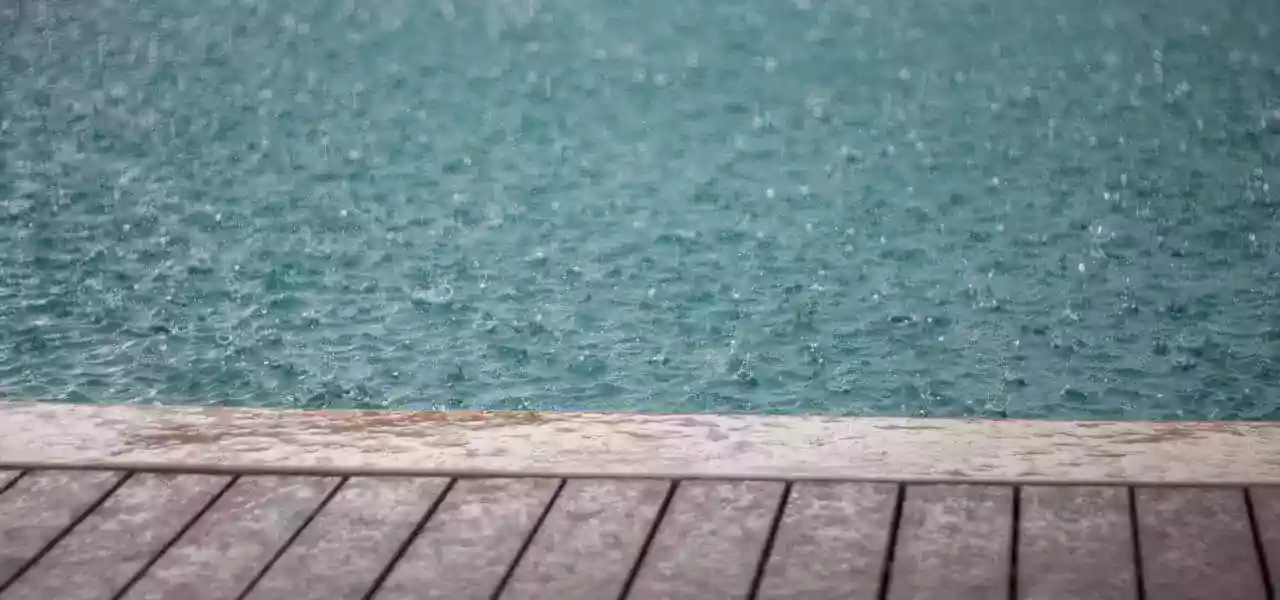
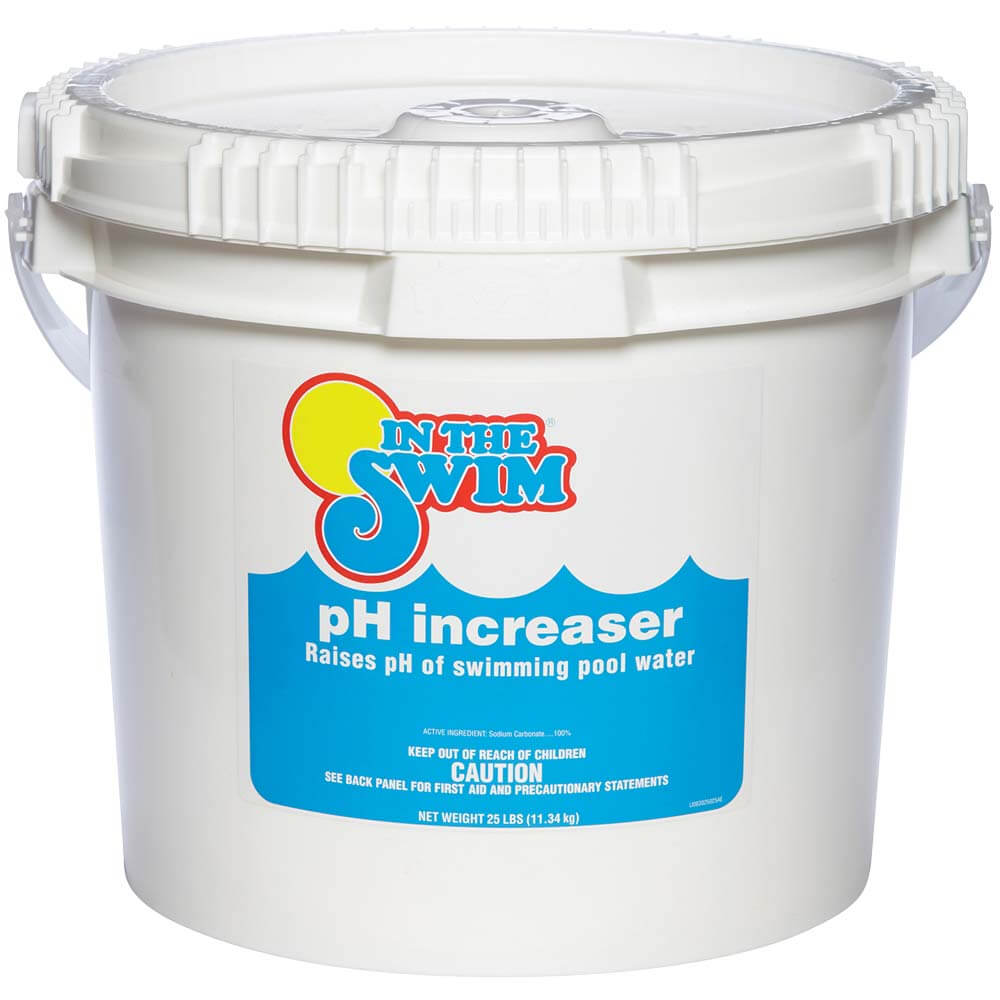
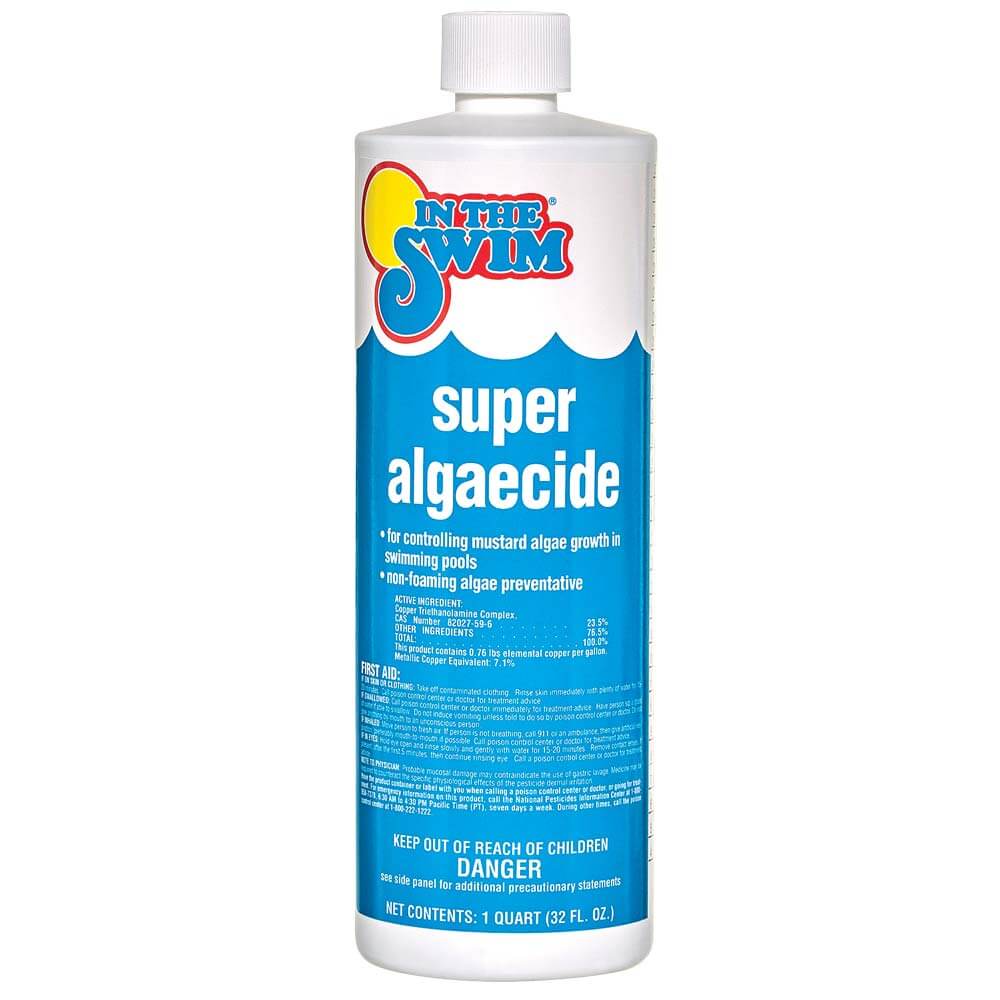
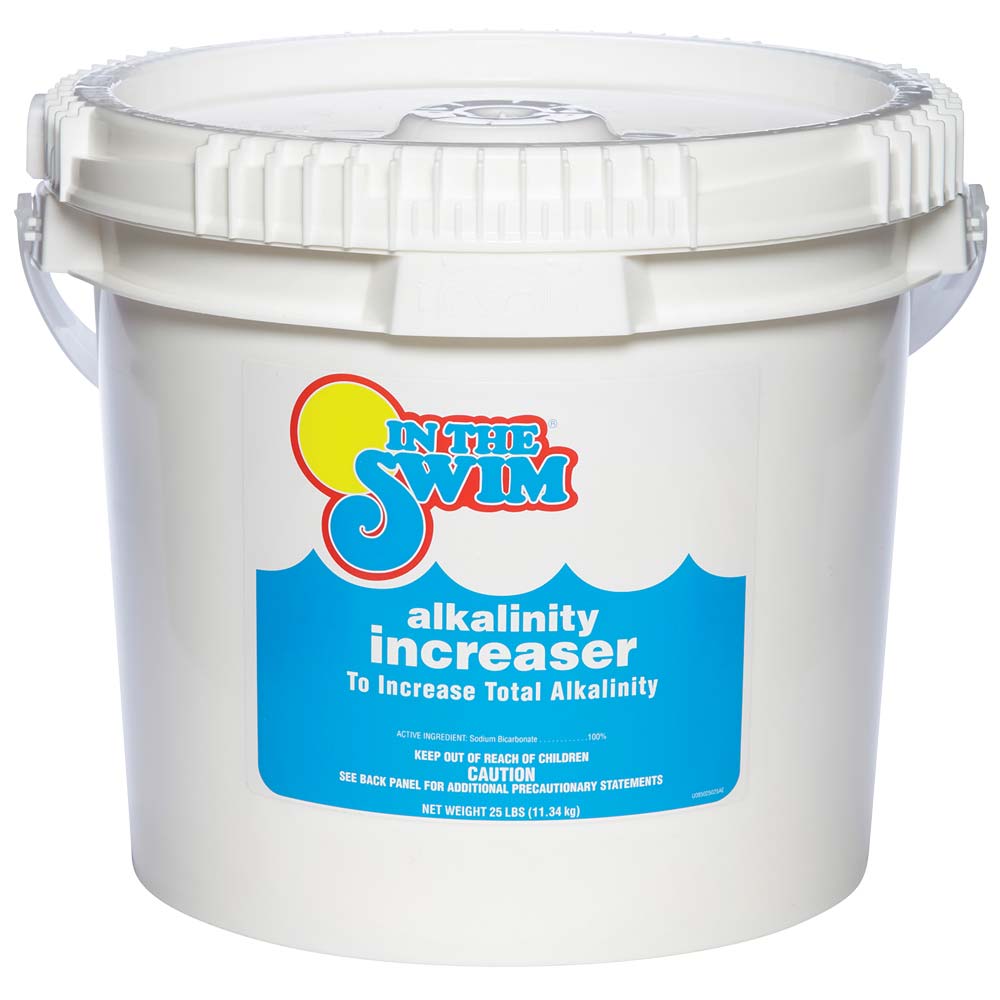
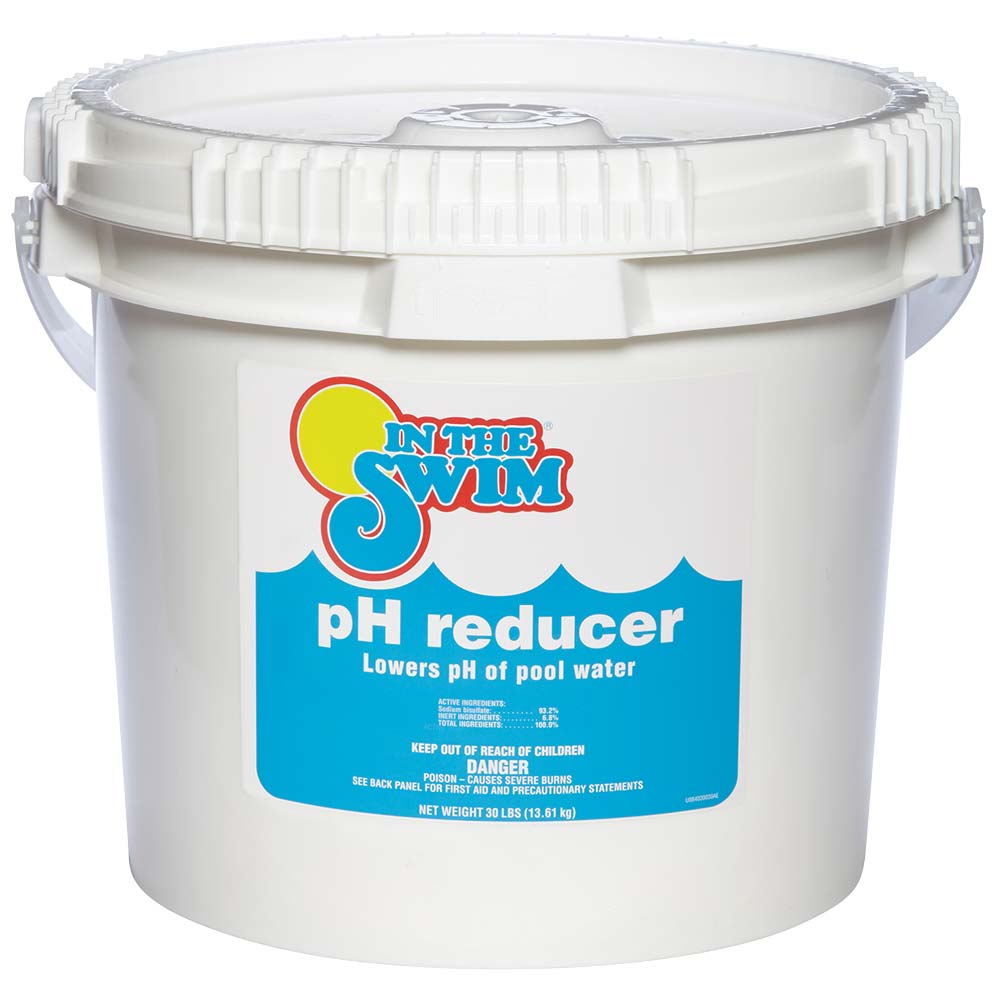
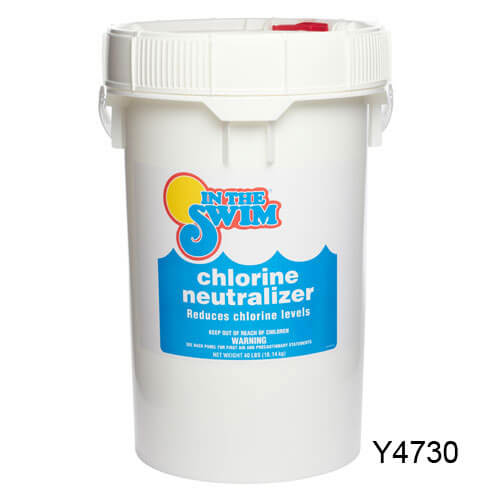
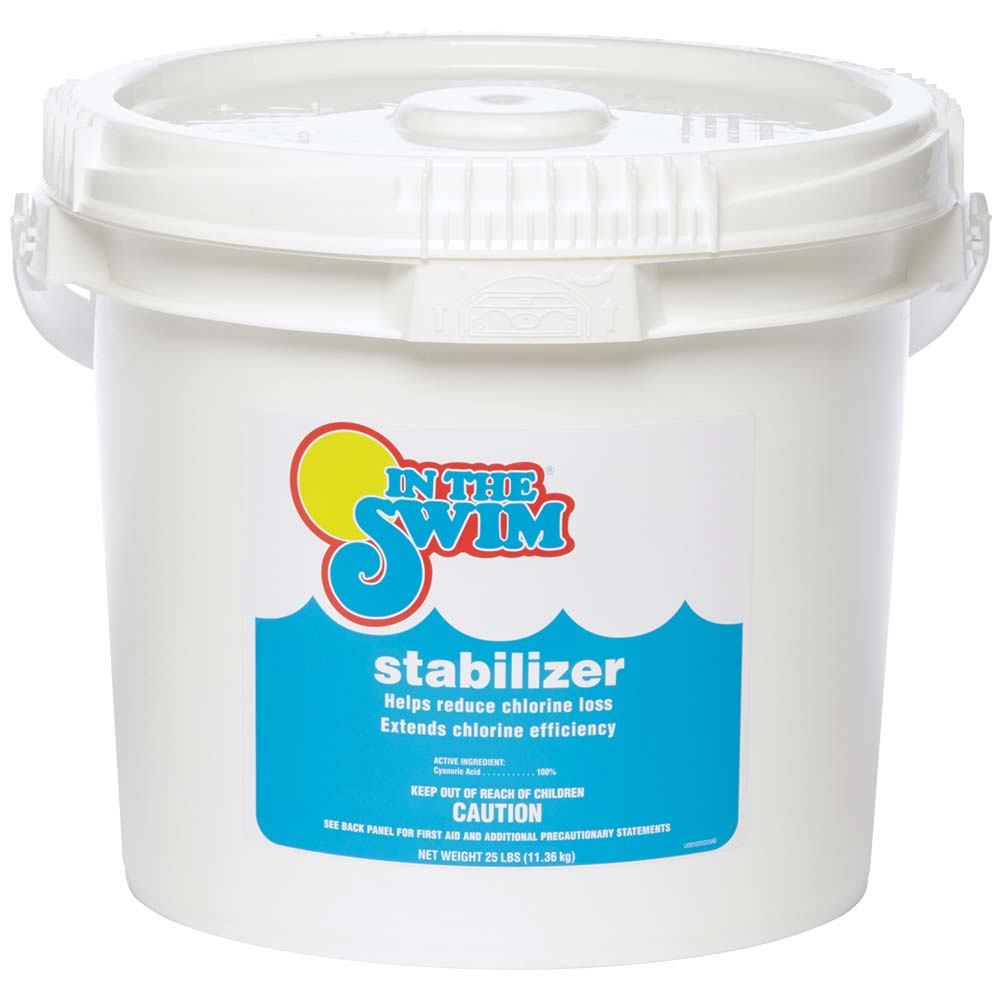
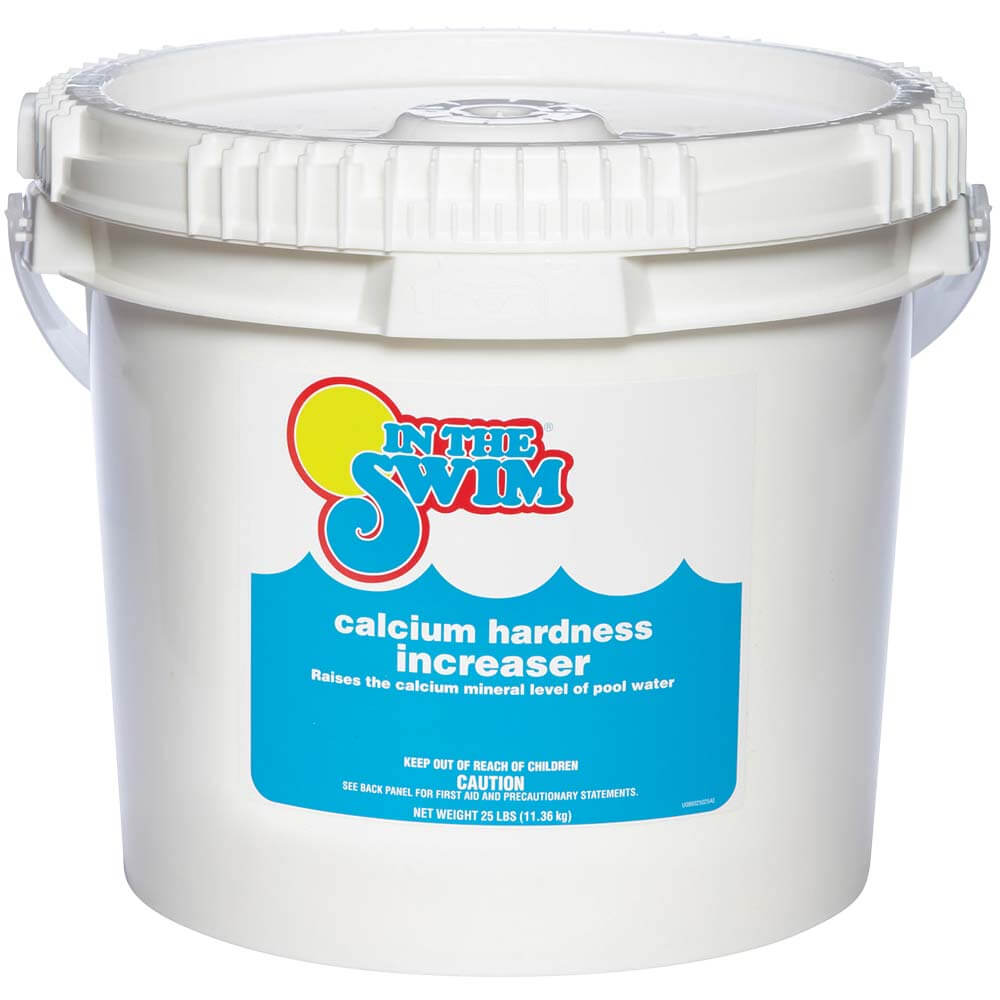
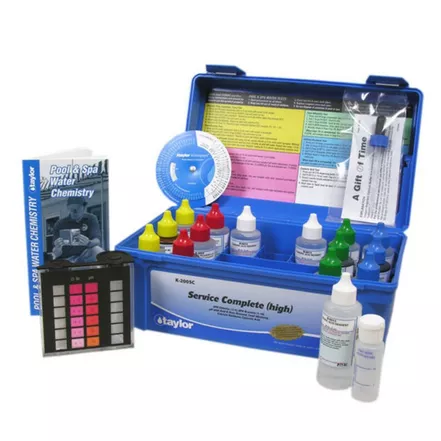
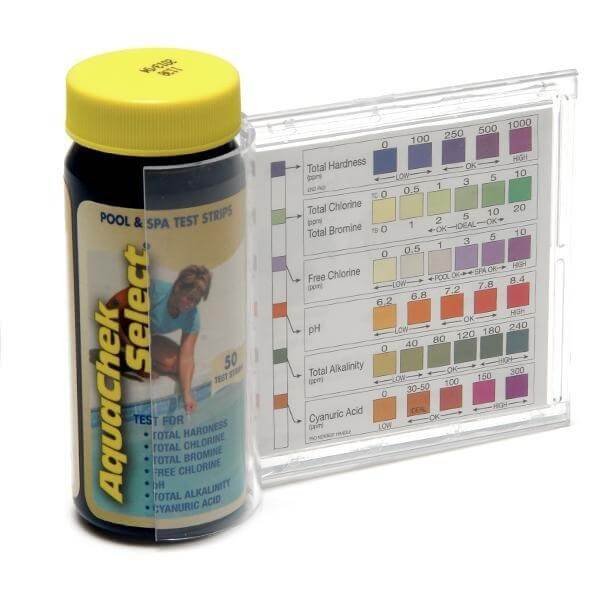
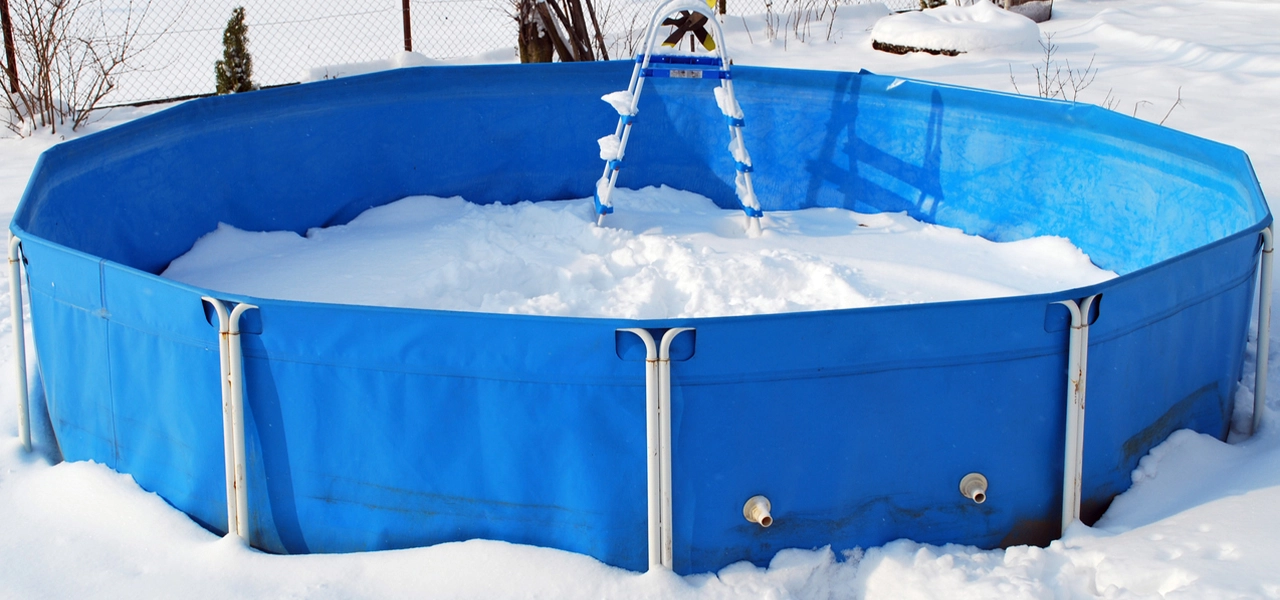
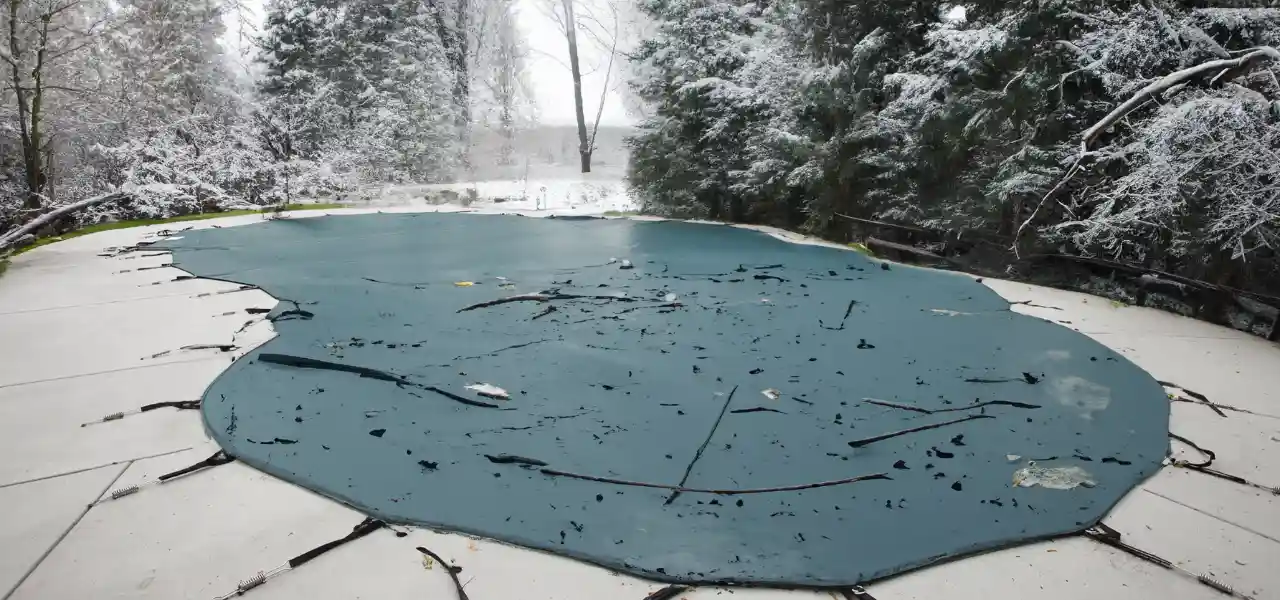
Is there any way to break down dirt and silt in a pool? We are having a terrible problem this year. We’re even considering draining and refilling the pool. Suggestions? We’ve tried all kinds of chemicals. Nothing is working to breakdown the dirt.
Hi Theresa, dirt in the pool, normally removed by the filter, perhaps your filter media (sand or cartridge) is bad, or the pump is too large for the filter, or the daily run time is insufficient, or water is bypassing the filter thru the filter valve or other internal issues, or some other issue preventing proper filtration. A Pool Filter Cleaner could be the fix, perhaps. If not, I’m thinking of Clarifiers and Enzymes, both which can help remove solids from pool water, and help out underperforming filters.
Hoping you can help. I use aqua silk products.pool water is usually beautiful. This year not so much. It has rained almost every day for a month, now just every 3 days or so. I’ve taken samples to pool place, and have tried several things to keep water balanced. But the water has never cleared. I can see the buttom some, but very cloudy. New sand put in filter when I opened, I also used a sand cleaner in case it was,causing the issue. I did have some kind of algae after I first opened my pool, but that seems to be gone. Another strange thing that never happened before is my oxidizer level shoots up really high when I add it to my pool. I’ve had to add something called chem out 2 times now. Could this rain be causing this? Thank you for any assistance.
Are you sure that the proper amount of sand was used? Usually about 2/3 full. Are you running the filter nearly non-stop? Does the filter pressure rise indicating that it is trapping dirt? Are you resisting the urge to backwash, until pressure rises 7-9 psi? (sand filters work better when slightly dirty). Have you tried a Clarifier? Chem Out is a chlorine Neutralizer, which should not be needed, since you should be using No Chlorine in your Aqua Silk treated (Bigaunide) pool. If it has been awhile with the same water, you may consider pumping out and replacing 1/3 to 1/2 of the water.
Ok so my water was slightly green but clear to the bottom and I took a sample over to dover pools. They told me my balance was good all except hardness and borate. They said my pool had metals in it and when I had it tested their were phosphates of 500. We have a salt water pool with salt system. They gave me directions to follow.
Step 1 add intensive stain prevention which they said would remove the medals with In 12 hours of adding the pool was now clear blue with no clouds. They said wait 24 hours and then backwash. We did and then they had us add 3 turbo shock packs. After 6 or 7 hours pool was still good. Had a heavy rain for less then an hour went outside about 3 hours later pool is now turning really green. Called the pool store and they said the rain must have metals and they think we should run it over night continue the next step which was add calcium hardness and a cell protector and then run the filter over night instead of with the chlorinator on like they told us with it off. Please help.
Hi Kate, I would continue their process, it’s likely that the rain contained some sort of chlorophyll, which can fall into the pool during rainstorms, and possibly there is another source of organic matter entering the pool during heavy rains, a small trickle in the corner of the pool can be all it takes, a mere handful of soil washing in… Check the chlorine level, and pH level, and carry-on, stiff upper lip! 🙂
my pool is crystal clear, my pH is 8 chlorine 2.5 but my TA is over 400 my neighbors bought fireworks that a city would use and my pool caught most of the spent shells and whatever the copper colored stuff used to pack them with was all over the bottom of my pool as it fell out as I picked up the plastic and cardboard casings. Could that be effecting the readings and can I use the acid and borax to adjust it.
Hi Tara – PA has some real good fireworks! Sorry about the issue though, that’s awful. I’m not sure what is contained in the fireworks, but hopefully it did not stain the pool too bad. It might have an effect on the readings, perhaps raising the pH somewhat, but unlikely it would have raised Alkalinity all the way to 400. Your pool could use heavy doses of acid to try and get it to stabilize around 7.6, which alkalinity below 200 ppm.
I have a 12′ round metal frame pool.i upgraded the filter to run a skimmer basket but I am seeing sediment that continues to settle in the bottom if the pool. I have vacuumed with a fine mesh filter in the battery operated vacuum but still see sediment any suggestions?
Hi Lenora, it may be time to change the filter cartridge, and keep vacuuming with the handheld, and brush the pool daily. Using a Clarifier can help also, by coagulating particles into a larger, more easily filtered size.
I have 13000 gallon above ground Vidal liner pool with nitrate issues pool store said 15 gallons of liquid chlorine to kill it is that safe for my liner?
Hi Glenn, it’s not good for the vinyl liner, but the other choice is to drain the pool I suppose, so your choice. You could also try a phosphate remover, which may also reduce the nitrates. 15 gallons may be a bit excessive, not sure – you might get to the proper threshold with only 10 gallons, but it’s hard to say since it’s not so very exact.
Hey!
Hoping you can help..my hayward 1.5 hp powerful matrix was working fine..I shut it off to clean out cartridge in filter…put it back together and nothing..no hum no noise ..like power getting to it..checked breaker and gfi switch..all good..any ideas
Since you flipped the breaker off and back on again, and checked the TEST button the GFI outlet, I would then check the connection of the power cord inside the motor. If there was a small humm or noise, then I would say replace the capacitor, but when no sounds, check the power coming in, if you have a multimeter, place the probes on the screws where the power cord connects, with meter set to 200V or higher. Should be receiving 110-130V, or 120V +/- 10%
We’ve been fighting algae. We got rid of the green algae, then about a week and a half later got we pink slime and white algae. Pink slime is gone after super shocking it. How long should I wait before adding out clarifier? We’ve already vacuumed and it’s been about 24 hours since we shocked it.
Hi Mattie, usually 24 hours would be sufficient after shocking, although most manufacturers suggest 48 hours – or when chlorine level drops down to 5-7 ppm. Very high chlorine levels can destroy Clarifiers, breaking apart the polymer chains.
Why does my pool produce foam when I use algaecide and shock?
Hi Pamela, certain types of algaecide produce foam, namely Quaternary Ammonia types, sometimes labeled with the number “50” in the name. You should avoid using shock and algaecide together however, as the shock can destroy or weaken the algaecide, when added at the same time.